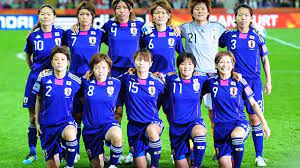The Rise of the Japan Football Team
Japan’s national football team, known as the Samurai Blue, has been making waves in the international football scene in recent years. With a rich history and a growing talent pool, Japan has become a force to be reckoned with on the global stage.
One of the key factors contributing to Japan’s success is their commitment to developing young talent. The country has invested heavily in grassroots football programmes, academies, and coaching education, leading to a steady stream of talented players emerging from the domestic leagues.
In addition to their focus on youth development, Japan has also made significant strides in improving their technical and tactical abilities. The team is known for their quick passing, fluid movement, and disciplined defending, making them a formidable opponent for any team.
Japan’s success on the international stage has been highlighted by their impressive performances in major tournaments such as the FIFA World Cup and the AFC Asian Cup. They have consistently qualified for the World Cup since 1998 and have reached the knockout stages on several occasions.
With a blend of experienced veterans and promising young talents, Japan continues to make progress towards establishing themselves as a powerhouse in Asian and world football. The future looks bright for the Samurai Blue as they strive for even greater success on the global stage.
The Popularity of Football in Japan: A National Perspective
Japan’s Position in Global Football Rankings: An Overview
4. Celebrating Excellence: Who
- Is Japan good at football?
- Is football popular in Japan?
- Where does Japan rank in football?
- Who is the best football in Japan?
Is Japan good at football?
Japan has established itself as a competitive force in international football in recent years, earning recognition for its skilled players and tactical prowess. The country’s commitment to developing young talent, coupled with investments in grassroots programmes and coaching education, has contributed to the success of its national team. With impressive performances in major tournaments like the FIFA World Cup and the AFC Asian Cup, Japan has proven its capabilities on the global stage. Their technical proficiency, disciplined defending, and cohesive gameplay have solidified their reputation as a strong footballing nation.
Is football popular in Japan?
Football is undeniably popular in Japan, with a growing fan base and a strong presence in the country’s sporting culture. The sport has gained significant momentum over the years, attracting a large following of passionate supporters who eagerly cheer for both domestic and international matches. With the success of the national team and the increasing competitiveness of the domestic leagues, football has become a widely embraced and celebrated sport in Japan, captivating audiences of all ages and backgrounds. The popularity of football in Japan continues to thrive, reflecting the country’s deep-rooted enthusiasm for the beautiful game.
Where does Japan rank in football?
In the world of football, Japan holds a respectable position in the global rankings. The Japan national football team has consistently been ranked among the top teams in Asia and has made significant strides in the international arena. Known for their technical skill, tactical prowess, and disciplined play, Japan often ranks within the top 50 teams worldwide according to FIFA rankings. With a strong focus on youth development and a growing pool of talented players, Japan continues to climb the ranks and establish itself as a competitive force in both Asian and world football.
Who is the best football in Japan?
When it comes to identifying the best football player in Japan, there are several talented individuals who have made significant contributions to the sport. Players like Shinji Kagawa, Keisuke Honda, and Maya Yoshida have garnered international recognition for their skills and achievements both domestically and on the global stage. Each player brings a unique set of strengths to the field, making it challenging to pinpoint a single “best” footballer in Japan. Ultimately, the best player may vary depending on individual preferences and criteria such as technical ability, leadership qualities, and overall impact on the game.
Tags: afc asian cup, coaching education, disciplined defending, fifa world cup, fluid movement, football, grassroots programmes, international scene, japan, japan football team, major tournaments, national team, powerhouse in asian and world football, quick passing, samurai blue, tactical abilities, talent pool, technical abilities
